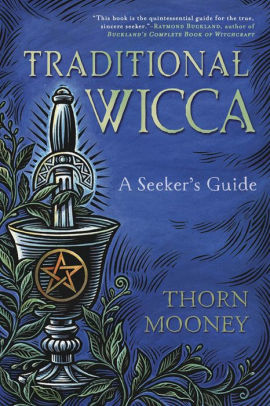A long time ago, a decision was made to call witchcraft 'wicca' and witches wiccans. Apparently this decision was made in the belief that the word witch has so many negative connotations it was unfair to those who practiced it. Wicca was a new term out of England. In the ensuing years almost all terms have lost their original meaning and there is a lot of discussion about who practices what. It's slightly exhausting. Many people have come to a place of: I don't care.
I've had the privilege of knowing witches and Wiccans from many walks and traditions in my many decades of practice. In my experience, words -- especially names -- are important. We can poo-poo titles all we want, but I'm going to have a different conversation with a multiple-decade solitary than I will with an Avalonian Priestess, than I will with a 3* Gardnerian. One is not better than another, they are *different* conversations; our language may be very similar, but the context we are using will be based on very different experiences and training.
Thorn Mooney's Traditional Wicca is a welcome addition to the conversation about the different paths of witchcraft and specifically for those interested in following a lineaged tradition. (Lineaged in this context refers to the groups that can trace their initiatory ancestry back to Gardner and Alexander through a degreed system of initiatory training and a shared body of lore and rituals.)
This is not a book for anyone looking for basic information about Wicca, how to practice it, or even how to do magic. Ms. Mooney doesn't 'spell" it out for newcomers. Instead, the author explains exactly what Traditional Wicca is and how it differs from other paths of Wicca and witchcraft in five key ways:
1. It is coven-based
2. It is initiatory
3. It is lineaged
4. It is hierarchical
5. It is experiential
She also makes it clear that much of what people *think* is Traditional Wicca, isn't even beginning to reveal it's richness.
Mooney's discussion of coven dynamics is fantastic and does a superb job of dispelling a lot of oft-repeated nonsense about coven vs. solitary practices. For those concerned about the potential for abuse within the hierarchical structure, Mooney offers a section about red flags and safety which seemed to me to be sensible, a lot like the safety checks for online dating.
The second half focuses on providing those interested in Traditional Wicca with what seems like good advice and information about locating a coven and the best way to approach becoming a student with them. I'm not Wiccan, and I appreciated how well she avoided any sense of dismissiveness towards other paths of witchcraft. Even more, I welcomed how honest Mooney is about her own experiences -- good and bad.
Highly recommended.
~review by Lisa Mc Sherry
Llewellyn Publications, 2018
pp. 216, $19.99
Traditional Wicca: A Seeker's Guide

©
2010 - 2026
Facing North
